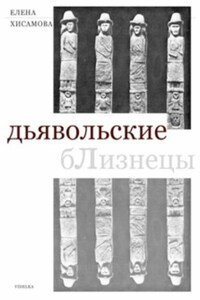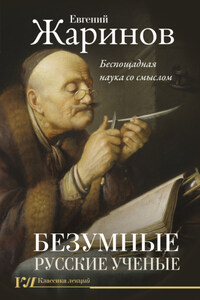"So I prophesied as I was commanded: and as I prophesied, there was a noise and behold a shaking, and the bones came together bone to bone.
"And, lo, the sinews and the flesh came upon them, but there was no breath in them.
"Son of man, prophesy unto the wind. Come from the four winds, O breath, and breathe upon these that they may live.
"And the breath came into them and they lived."
To MY FRIEND OF TWENTY-ONE YEARS, CHARLES EMERSON BEECHER
who, with infinite skill and patience, has breathed the breath of life into the dry bones of Earth's untold ages of upward struggle, who has made them speak of the eternity of their past, and has made them prophesy hope for the eternity to come, this book is dedicated by the author.
"Mais oui! I tell you one ting. One big ting. Ze big man wiz ze glass eyes, he is vat you call one slik stoff. Ze big man wiz ze glass eyes."
"The old man?"
"Zat's him! One slik stoff! Écoutez! Listen! One day, you mek ze gran' trip. Look hout!" Pierre made a gesture as of a dog shaking a rat.
The utter darkness of the underground laboratory was parted in solid masses, by bars of light that spurted from the cracks of a fiercely glowing furnace. One shaft fell on a row of large, unstoppered bottles. From these bottles fumes arose, mingled, and fell in stifling clouds of fleecy white. From another bottle in Pierre's hands a dense red smoke welled from a colourless liquid, crowded through the neck, wriggled through the bar of light, and sank in the darkness beneath. The darkness was uncanny, the fumes suffocating, the low hum of the furnace forcing out the shafts of light from the cracks of the imprisoning walls infernally suggestive.
Luna shivered. He was ignorant, therefore superstitious, and superstition strongly suggested the unnatural. He knew that furnaces and retorts and acids and alkalies were necessary to the refinement of gold. He feared them, yet he had used them, but he had used them where the full light of day robbed them of half their terrors. In open air acids might smoke, but drifting winds would brush away the fumes. Furnaces might glow, but their glow would be as naught in sunlight. There was no darkness in which devils could hide to pounce on him unawares, no walls to imprison him. The gold he retorted on his shovel was his, and he had no fear of the law. In the underground laboratory of Pierre the element of fear was ever present. The gold that the furnace retorted was stolen, and Luna was the thief. There were other thieves, but that did not matter to him. He stole gold from the mill. Others stole gold from the mine. It all came to Pierre and to Pierre's underground furnace. He stood in terror of the supernatural, of the law, and, most of all, of Pierre. In the darkness barred with fierce jets of light, imprisoned by walls that he could not see, cut off from the free air of open day, stifled by pungent gases that stung him, throat and eye, he felt an uncanny oppression, fear of the unknown, fear of the law, most of all fear of Pierre.
Pierre watched him through his mantle of darkness. He thrust forward his head, and a bar of light smote him across his open lips. It showed his gleaming teeth white and shut, his black moustache, his swarthy lips parted in a sardonic smile; that was all. A horrible grin on a background of inky black.
Luna shrank.
"Leave off your devil's tricks."
"Moi?"
Pierre replaced the bottle of acid on the shelf and picked up a pair of tongs. As he raised the cover of the glowing crucible a sudden transformation took place. The upper part of the laboratory blazed out fiercely, and in this light Pierre moved with gesticulating arms, the lower part of his body wholly hidden. He lifted the crucible, shook it for a moment with an oscillatory motion, then replaced it on the fire. He turned again to Luna.
"Hall ze time I mek ze explain. Hall ze time you mek ze question. Comment?"
Luna's courage was returning in the light.
"You're damned thick-headed, when it suits you, all right. Well, I'll explain. Last clean-up I brought you two pounds of amalgam if it was an ounce. All I got out of it was fifty dollars. You said that was my share. Hansen brought you a chunk of quartz from the mine. He showed it to me first. If I know gold from sulphur, there was sixty dollars in it. Hansen got five out of it."
Pierre interrupted.
"You mek mention ze name."
"There's no one to hear in this damned hell of yours."
"Non," Pierre answered. "You mek mention in zis hell. Bimby you mek mention," Pierre gave an expressive upward jerk with his thumb, then shrugged his shoulders.
"I'll look out for that," Luna answered, impatiently. "I'm after something else now. I'm getting sick of pinching the mill and bringing the stuff here for nothing. So are the rest of the boys. We ain't got no hold on you and you ain't playing fair. You've got to break even or this thing's going to stop."
Pierre made no reply to Luna. He picked up the tongs, lifted the crucible from the fire, and again replaced it. Then he brought out an ingot mould and laid it on a ledge of the furnace. The crucible was again lifted from the fire, and its contents were emptied in the mould. Pierre and Luna both watched the glowing metal. As it slowly cooled, iridescent sheens of light swept over its surface like the changing colours of a dying dolphin. Pierre held up the mould to Luna.









